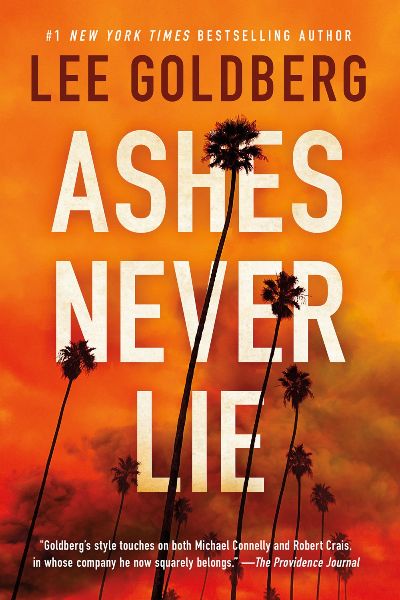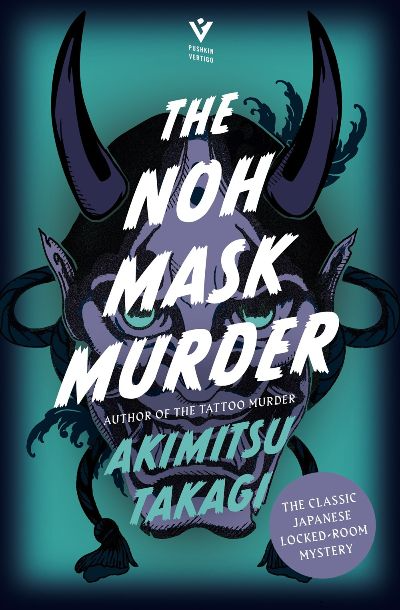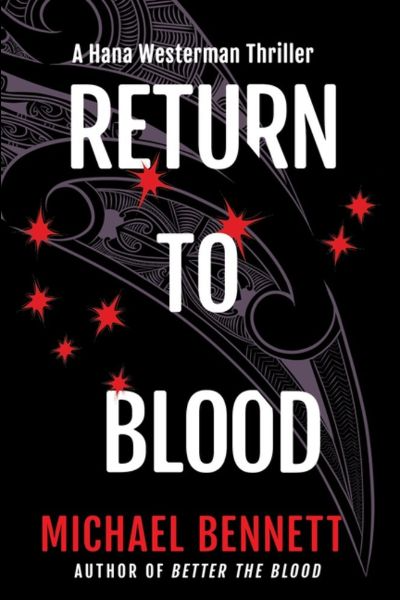What’s better than a gripping story that also teaches you a ton about a fascinating subject? That’s just what readers will get in Goldberg’s follow-up to Malibu Burning (2023). This time, odd-couple Los Angeles arson investigators Walter Sharpe and Andrew Walker are faced with several perplexing crimes. The central case involves a series of just-built, as-yet-uninhabited homes for the wealthy that combust in a far more explosive way than an empty house. Then there’s the man who’s found dead in a fire, but the fire didn’t kill him. Fraud pokes its head up too, with all keeping Sharpe—a genius with fire investigation, but socially not so much—and his still-learning partner busy with intriguing theories based on detailed descriptions of the workings of fire, accelerants, and more. The characterization here is wonderfully enjoyable, with the partners and their various associates bantering in ways that’s sometimes hilarious and always reveals the human behind the shield. Goldberg’s author’s note helpfully details the books about fire dynamics and investigation that he used for research, and readers may want to try these as well, notably Fireraisers, Freaks, and Fiends, “Torchered” Minds by former LA County arson and explosives detective Ed Nordskog, who also answered questions for the book.
Book of the Week
The village of Teetarpur, on the outskirts of Delhi, has been known for nothing for decades. Grittiness yes, but no crimes, no scandals. Until the unthinkable happens and an eight-year-old girl, Munia, is murdered, discovered hanging from the branch of a tree. Munia may have been shy, but she was much loved by her father, the widowed Chand, and the rest of her community. Part police procedural, part literary thriller, this beautifully written narrative brings rural India to life. The novel is told in the third person, with vivid characters richly developed and time that moves back and forth as we see Chand in his youth, living by the Yamuna, the black river of the book’s title. We follow local inspector Ombir Singh, under pressure from the rich and the political elite to resolve the killing, and Chand, calm on the exterior, but whose blood boils with revenge, not trusting the police. Roy is a journalist, and it’s tempting to attribute that to what makes this book so magnificently successful: the range of society, the moral complexity of many of the characters, and the terrifying brutality. Sure to be one of the best books of the year.
Hooray for a new series that is fresh and funny, sophisticated and country. Dee Stern has had better years. Her Mom died unexpectedly. Her second marriage went kaput. And her career—she’s a sitcom writer in LA—is petering out. On a drive through the country to escape from it all, she discovers the Golden Motel, a mid-century-modern motel nestled in the foothills of the Sierras. And best of all, it’s FOR SALE. It doesn’t take much for Dee to convince Jeff—husband #1—to join her in this “lifestyle change” and become co-owner of the Golden Motel, Findgold, CA. In no time, they attract their first customer, one Michael Adam Baker who—freakishly enough—Dee knew as a frenemy from the sitcom world. What are the chances of that? Zero to none, it turns out. By the time she discovers what Michael is really up to, it’s too late, and their first guest is also their first victim. Agatha Award-winning author Byron has taken a fascinating community, great characters, the tension between city and country people, and the indomitable Dee to create a high-energy and hilarious series that readers won’t be quick to forget.
This piercingly written tale of modern life in Ghana is preceded by a warning in Quartey’s heartfelt prologue that his novel includes scenes of violence against gay characters and should be approached with “caution and mindfulness.” That’s fair to say, but it must also be noted that the violence is in keeping with the story and not gratuitous, except on the part of the criminals. The effects of white-supremacist missionary work in Africa also loom large in the story, which centers around the murderous homophobia stoked in Ghana by an American evangelical Christian, Chris Cortland. His bigoted ways have brought him to Africa where he finds a home among those who believe that “homosexuality isn’t indigenous to Ghana.” The tale features many well-drawn characters, all presented in an opening character list (don’t be put off by the full to bursting cast here!). They fall into three main groups: trans women who are being murdered, with famous Ghanaian pop singer Henrietta Blay the focus; Emma Djan and the other private investigators who who make this police-procedural-esque, employed because “the police might not give the case high priority”; and the smarmy, self-righteous circle of Americans and Ghanaians around Cortland, whose behavior means the book could also come with a domestic violence warning. The murder mystery is compelling here, but readers will also be absorbed by the politics and religious machinations and the emotional brutality the mixing of the two creates.
First published in 1949 and now elegantly translated into English for the first time, this award-winning atmospheric puzzler by a celebrated author from Japan’s golden age of detective fiction is both an intricate locked-room mystery and a metafictional take on how to write such a crime novel. In the summer of 1946 at a bathing resort, Akimitsu Takagi, a devotee of mystery fiction and an aspiring amateur sleuth, runs into Koichi Yanagi, an old school friend who has just returned to Japan after serving in Burma. Koichi now works for the respected Chizui family, whose members appear to be as cursed as Edgar Allen Poe’s Usher siblings. Ten years earlier, the patriarch, Professor Chizui, died of an apparent heart attack, although Koichi suspects foul play; his wife was institutionalized in an asylum; and recently their daughter also lost her sanity. One night, an eerie figure wearing a demonic hannya Noh mask is spotted in the upstairs window of the Chizui mansion; Taijiro, the professor’s brother, asks Akimitsu to investigate. By the time the sleuth arrives on the scene, Taijiro has been found dead in an armchair in his locked bedroom, with the mask on the floor beside him and the scent of jasmine lingering in the air. When Akimitsu learns that someone has ordered three coffins, he fears that the worst is yet to come. The author cleverly structures his plot like a Russian nesting doll, with one puzzle embedded within another puzzle inside another puzzle, until it is resolved in a surprising and satisfying conclusion. Agatha Christie and S.S. Van Dine fans will enjoy this twisty tale.
Hands down the creepiest book we’ve reviewed this year, if not in several years. Charlie and Eve are a gay couple who make their living buying and flipping old houses. Their current project is in the rural Pacific Northwest, far from their roots on the East Coast. A family drops by one afternoon
—Eve is all alone while Charlie is running errands—and the father says he grew up in the house and could he show the kids around? It takes a bit of cajoling, but Eve eventually gives in—huge mistake—because once they’re in the house, the weird and the worrisome begin to present themselves. The youngest daughter disappears. The basement is home to supernatural presences. Objects vanish. Charlie returns, although she doesn’t offer the support Eve needs. As the day goes on, it becomes clear that the family can’t leave—a winter storm has descended on them—but it gradually becomes even clearer that they have no intention of leaving. Crazily suspenseful, but a tad more horror than mystery, the story moves at a fast clip as the reader slips from one reality to another in this accomplished debut. To be released as a Netflix original film starring Blake Lively.
This sequel to Trussoni’s 2023 The Puzzle Master (my favorite book of all time!) finds savant Mike Brink once more faced with a puzzle that others have found unsolvable. This time his help is requested by the Japanese imperial family, who dispatch another puzzle genius, Sakura Nakamoto, to whisk him from New York to Tokyo. Mike is well known for his work creating puzzles and taking part in competitions in which participants recite the string of numbers that form pi, his synesthesia allowing the numbers to appear “as a scale of color at the edge of his vision.” These are the upsides of the accident that left him an affable genius. But there are drawbacks. He’s so far been unable to form any romantic relationship and struggles to understand himself. So when Sakura tells him that the beautiful Dragon Puzzle Box, a puzzle that’s uber-famous in Mike’s world, is available for him to try, and that it will help him to understand his gift, he jumps at it. This is no ordinary box—others who have tried to open it have had fingers amputated or been poisoned by the puzzle’s booby traps. Work on it takes Mike on thrilling journeys not only to fascinating Japanese locales but further into the recesses of his mind than he thought possible. Engrossed readers will happily make the trips with him. While you’re waiting for this wonderful follow-up, get The Puzzle Master and read our interview with Trussoni when that book was published.
If you like a jaw-dropping twist, this is the book for you, and I mean the reaction literally: at one point in this great domestic drama, one character whispers a closing remark to another that literally made my mouth hang open. And that wasn’t the last surprise. The drama concerns a missing child, Laika Martenwood, whose English family’s treatment by the media after she’s gone will remind readers of the real-life McCann family, dragged through the tabloids after their daughter was snatched. The Martenwoods are more dysfunctional than even the tabloids say, though. The father is one of the most loathsome characters to come along in a while; his wife is so psychologically abused that she can’t leave and can’t protect her children from him; and daughters Willa and Laika are relentlessly mocked and bullied by the horrible man. As the book opens, we find Willa as an adult, barely hanging onto the life she’s cobbled together while agonizing over whether her sister is still alive, where she could be, and what happened to her all those years ago. Moving back and forth in time, Collins puts the media and family ties under a magnifying glass, in the process reminding readers that just as things don’t break on their own, they don’t have to stay broken.
Readers in search of a classic mystery need look no further, and if you have a fascination with San Francisco, as I do, then you’re doubly in luck. Capri Sanzio is the granddaughter of one of the City’s most famous serial killers: William “Overkill Bill” Sanzio, who’s now deceased. So named because “he bashed his three victims on the head, stabbed them to death, then sliced their throats after the fact.” A thorough kind of guy. Capri’s parents are shamed by their relationship to Bill, but Capri—who believes he was innocent—has a far more complicated response: she runs a highly successful business providing tours related to San Francisco’s serial killers (with herself, as Bill’s granddaughter, one of the prime attractions). But suddenly there’s a copycat of Bill murdering San Francisco women—one of whom is closely related to Capri—and the cops have made it clear that Capri or her daughter (herself a doctoral student in criminology) are their two prime suspects. With excursions from high society to the working class, and richly detailed portraits of San Francisco, this fascinating, fast-paced novel should find a broad readership. More, please?
Following his acclaimed debut, Better the Blood, Michael Bennett’s compelling sophomore outing in his crime series starring Māori detective Hana Westerman proves the New Zealand screenwriter and author is no one-hit wonder as a mystery writer. In the wake of the traumatic events recounted in the first book, Hana has resigned from the Auckland CIB (Criminal Investigation Branch) and returned to her hometown of Tātā Bay, where she helps her father, Eru, prepare local Māori teens to get their driver’s licenses. But the calm Hana is trying to rebuild is shattered when her 18-year-old daughter, Addison, discovers the skeleton of a young woman in the sand dunes. Investigators suspect the bones may be those of Kiri Thomas, a Māori teenager who disappeared four years earlier. Although Hana is no longer in the police force, she begins to probe the possibility that Kiri’s death may be connected to the 21-year-old unsolved murder of Paige Meadows, whose body was found in the same dunes. Likewise, Addison becomes obsessed with Kiri’s fate, threatening her friendship with her non-binary flatmate and musical partner, Plus 1. In a nod to Alice Sebold’s The Lovely Bones, the storyline is interspersed with the dead Kiri’s haunting first-person narrative. Bennett, who is Māori, immerses readers deeper into Māori culture and traditions as he expands on Hana’s loving relationship with her father and tense interactions with her chilly second cousin, Eyes. An atmospheric thriller that will have readers booking flights to New Zealand. Bennett is adapting Better the Blood into a six-part TV series for Taika Waititi’s production company.










